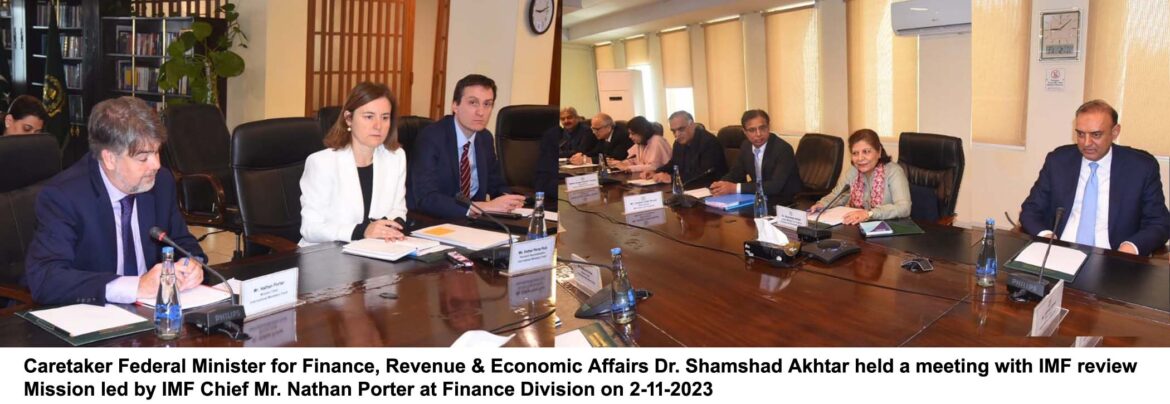By Staff Reporter
ISLAMABAD: Pakistan and the International Monetary Fund (IMF) began the first review of a $3 billion bailout package on Thursday, with both sides expressing early satisfaction over the country’s progress in meeting the fiscal and monetary targets set by the lender.
The talks, which are expected to last for two weeks, will focus on the reforms and measures taken by the caretaker government to improve Pakistan’s fiscal and external situation, as well as the outlook for the next nine months of the program, which ends in March 2024.
The review will assess Pakistan’s performance in the July-September quarter and discuss the reforms needed to complete the nine-month Standby Arrangement (SBA) by March next year.
Caretaker Finance Minister Shamshad Akhtar and IMF mission chief for Pakistan Nathan Porter led their respective teams in the opening round of talks.
“The Minister briefed the Mission on comprehensive reforms and measures undertaken by FBR and the government’s strategies to address the issue of circular debt,” the finance ministry said in a statement. “Mr. Nathan Porter, IMF Mission Chief, appreciated the government’s commitment to meeting the 1st Quarter targets, and commended the government’s efforts taken in some critical areas.”
Pakistan entered a 12-month SBA in July 2023 to support its balance of payments and provide a buffer against external shocks. The program aims to reduce fiscal and current account deficits, build up foreign exchange reserves, strengthen social safety nets, and improve governance and financial transparency.
The IMF has so far disbursed $1.2 billion to Pakistan under the program, which is subject to quarterly reviews. The next tranche is expected to be around $710 million, depending on Pakistan’s performance in the first quarter.
A positive appraisal by the IMF team will pave the way for the approval of a second loan tranche under the short-term loan by the Fund’s executive board in December.
The IMF review team was informed that tax collection and petroleum development levy had exceeded the target while the market-based currency exchange rate policy was also being implemented.
The country had exceeded the targets for primary surplus and non-revenue collections in the first quarter, thanks to tight control on expenditures and comprehensive reforms by the Federal Board of Revenue (FBR).
Measures have also been taken to address the issue of circular debt in the power and natural gas sectors, including rebasing the consumer-end tariff in July and increasing the natural gas tariff in October.
Officials said the technical-level discussions with relevant ministries and agencies would begin on Friday and then resume on Monday and continue throughout the next week.
The main areas of focus in the technical-level discussions would be the power and natural gas sectors, which have been the main sources of past failures and rising fiscal slippages.
Meeting the target for net international reserves (NIR) of the central bank could be a challenge in the second quarter, as total disbursements from multilateral and bilateral sources were expected to be lower than expected.
Copyright © 2021 Independent Pakistan | All rights reserved




